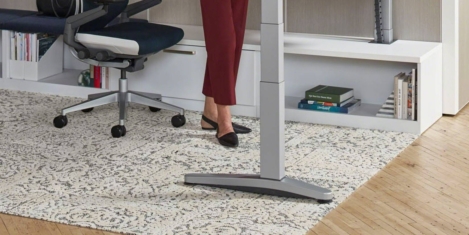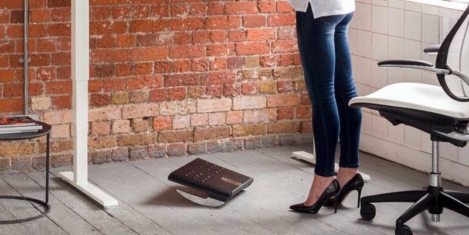September 6, 2018
Leading a hybrid future workforce of robots, episodic employees and gig leaders
 Visions of hybrid workforces, episodic employees, gig leadership and acceptable failure have been unearthed in a new study, ‘Work 2028: trends, dilemmas and choices’, revealing business and society leaders’ projections for the fourth industrial revolution. The project was led by Professor Bernd Vogel at Henley Business School and run in collaboration with Deutsche Telekom and Detecon Consulting, who commissioned Henley to carry out the survey. The research involved interviews with over 50 influential leaders from across a variety of sectors and countries including senior figures from Amazon and Unilever to look at the challenges facing organisations and their future workforce.
Visions of hybrid workforces, episodic employees, gig leadership and acceptable failure have been unearthed in a new study, ‘Work 2028: trends, dilemmas and choices’, revealing business and society leaders’ projections for the fourth industrial revolution. The project was led by Professor Bernd Vogel at Henley Business School and run in collaboration with Deutsche Telekom and Detecon Consulting, who commissioned Henley to carry out the survey. The research involved interviews with over 50 influential leaders from across a variety of sectors and countries including senior figures from Amazon and Unilever to look at the challenges facing organisations and their future workforce.








 A significant number (37 per cent) of workers (11 million people) in the UK worry their job will change for the worse and 23 per cent (7 million people) are concerned that their current job may no longer be needed, claims a survey into the impact of automation over the next decade. In the survey, carried out to mark the launch of a new Commission on Workers and Technology chaired by Yvette Cooper MP, workers were 73 per cent confident they can adapt to technological change and update their skill if automation affects their job and over half think (53 per cent) are optimistic that technology change will be good for their working lives.
A significant number (37 per cent) of workers (11 million people) in the UK worry their job will change for the worse and 23 per cent (7 million people) are concerned that their current job may no longer be needed, claims a survey into the impact of automation over the next decade. In the survey, carried out to mark the launch of a new Commission on Workers and Technology chaired by Yvette Cooper MP, workers were 73 per cent confident they can adapt to technological change and update their skill if automation affects their job and over half think (53 per cent) are optimistic that technology change will be good for their working lives. 














 Almost 60 percent of UK employees are unable to identify key symptoms of the most common mental health conditions resulting in treatment delays for millions of workers. A new study from Bupa examined employees’ understanding of key psychological and behavioural symptoms of six of the most prevalent conditions in the UK, as well as identifying widely-held misconceptions. The research reveals that inaccurate assumptions have caused almost seven million people to delay seeking support for a mental health problem. Early diagnosis and treatment of conditions can improve recovery rates which is why medical experts at Bupa want to raise awareness of the accurate symptoms.
Almost 60 percent of UK employees are unable to identify key symptoms of the most common mental health conditions resulting in treatment delays for millions of workers. A new study from Bupa examined employees’ understanding of key psychological and behavioural symptoms of six of the most prevalent conditions in the UK, as well as identifying widely-held misconceptions. The research reveals that inaccurate assumptions have caused almost seven million people to delay seeking support for a mental health problem. Early diagnosis and treatment of conditions can improve recovery rates which is why medical experts at Bupa want to raise awareness of the accurate symptoms. 








July 17, 2018
Video: Arthur C Clarke predicts remote and flexible working in 1964
by Mark Eltringham • Comment, Technology, Workplace, Workplace design
(more…)